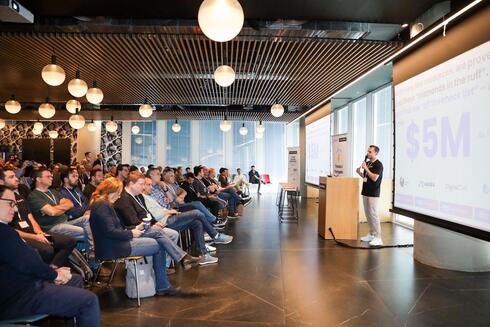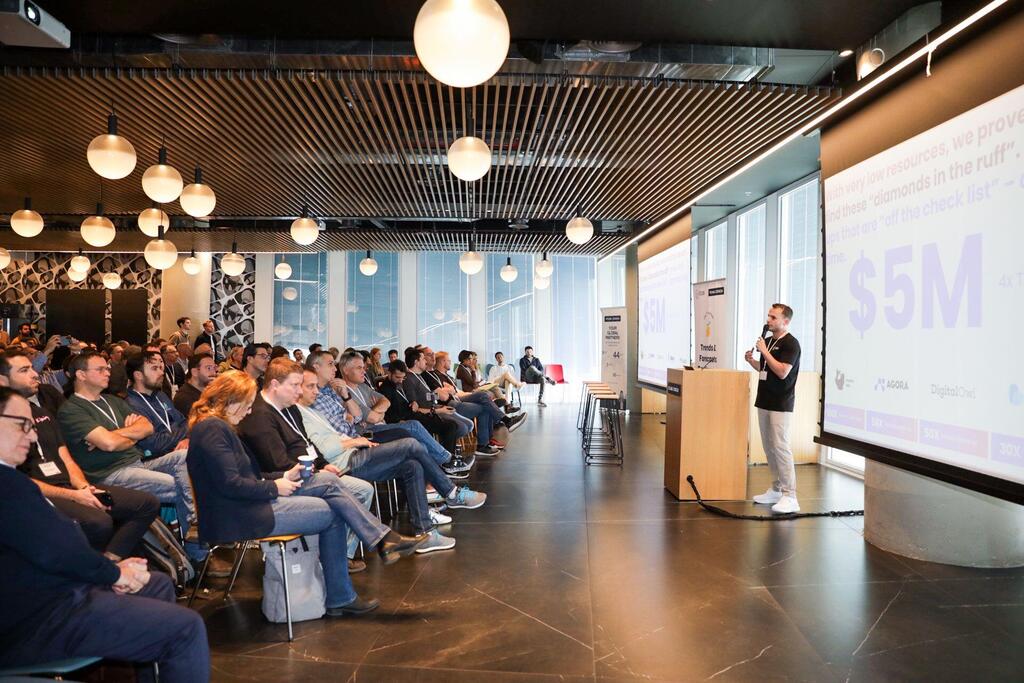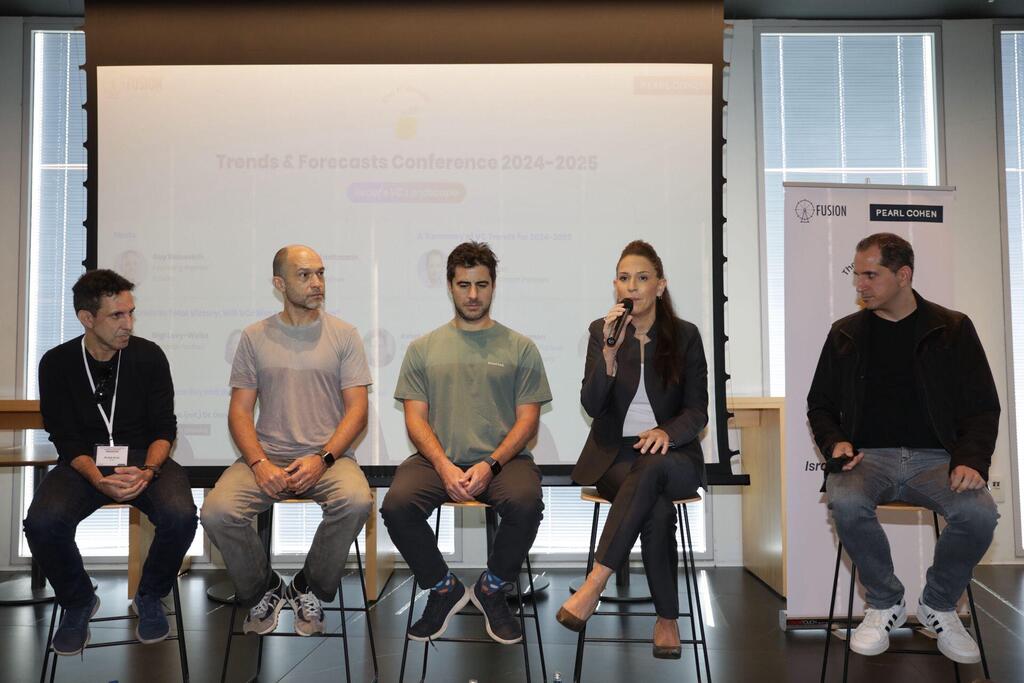
M&As hit record high, but Israeli tech still struggles with political and economic uncertainty
Israel’s VC community gathered for Fusion VC’s annual Trends and Forecasts conference to discuss concerns about Israel’s geopolitical instability and lack of foreign investment. Participants were cautiously optimistic regarding the stability of the tech ecosystem amid a year which saw a record $10.5 billion in tech M&As.
“10% of Israeli investors fear competition from foreign funds,” said Fusion VC Co-Founder Guy Katsovich during his opening remarks at Fusion VC’s seventh annual Trends & Forecasts conference at Pearl Cohen’s offices in the iconic Azrieli Sarona Tower. “There is also concern that the Israeli tech ecosystem is overly concentrated in cybersecurity, with too few resources directed toward consumer-focused companies. This limits the potential for Israel to build large-scale consumer businesses. Without a shift in investment trends, the market will remain heavily skewed toward cybersecurity startups.”
Amid a tumultuous geopolitical, security and economic period, a crowd of more than 200 members of Israel’s VC and investor community, including entrepreneurs and innovation leaders gathered at Pearl Cohen’s offices in the Azrieli Sarona Tower, to hear about the latest trends in Israel’s VC market and forecasts for the coming year.
Fusion surveyed investors prior to the conference and found that 43% of respondents cited “political and security instability” as their biggest concern regarding Israel’s market, followed by 38% of respondents who were most concerned by “difficulties in raising funds for new ventures.” Attracting foreign investment was another key issue, with a concern about Israel deterring international backers, as well as local institutions' reluctance to make follow-on investments in the Israeli ecosystem.
One of the most pressing concerns raised was in regards to lower foreign investment in the Israeli market. Pearl Cohen partner Guy Lachmann noted that non-American foreign investment has dramatically lessened, saying that, “Many European and Asian investors currently view investment in Israel as complex and too challenging,” he said. “Most have lost interest in us. Investment deals are ongoing, and new ones are starting, mostly at relatively modest valuations and with very cautious and measured investor behavior.”
In addition to investment leaving Israel, there were repeated concerns made about Israeli entrepreneurs leaving. “I know many people who are relocating and not just in high-tech. We have to stop this. If we don’t stop [the leadership here], it will continue. It will also affect security,” said Gigi Levy-Weiss, Founding Partner at NFX, on a panel, linking this concern to the political turmoil engulfing the country. “There is a sense that this government isn’t concerned about the state. That’s not a political feeling, this is a government that is interested in division, in sectarianism.”
“This isn’t about right or left, it's about a country that represents all of its citizens, including those in the North and the South, and those who serve, contribute, participate and believe in a liberal, democratic state. If we don’t succeed in resolving these issues in our government, there will be an even greater wave of [emigration].”
Asaf Horesh, Managing Partner at Vintage Investment Partners, presented a slightly more optimistic report on last year’s performance of funds and startups. “Despite economic and geopolitical challenges, Israeli startups achieved a record-breaking $10.5 billion in mergers and acquisitions over the past year, surpassing the previous high of $8.6 billion set in 2021,” Horesh noted.
Startup fundraising also showed signs of stability, and even growth, with $8.1 billion raised in the first three quarters of 2024 compared to $7.3 billion during the same period in 2023. However, the number of deals dropped significantly to 434 from 682, underscoring a growing preference for funding more mature and robust companies. While the volume of deals has declined, the total capital raised indicates that investors are prioritizing quality over quantity.
A panel discussion brought together some of the industry’s top voices, including Levy-Weiss, Yifat Oron, Senior Managing Director at Blackstone Israel, Liad Agmon, Managing Director at Insight Partners, Daniel Shinar, CEO of Claltech, and Aviad Ariel, General Partner at Vertex Ventures.
The panelists shared insights on how political instability and global economic turbulence have reshaped investment strategies. Topics ranged from adapting to fundraising challenges to fostering international collaboration and diversifying Israel’s tech portfolio beyond its cybersecurity dominance. AI was frequently mentioned, with Levy-Weiss noting that “there’s no such thing as a non-AI startup anymore - every solution needs to be AI integrated.”
The event concluded with a fireside chat with Danny Gold, Head of Israel’s Directorate of Defense Research & Development, and developer of the Iron Dome and Pearl Cohen partner Guy Lachmann. Gold shared insights into the evolution of Israel’s defense technology and its broader implications for the tech ecosystem.
Now in its seventh year, Fusion’s Trends & Forecasts conference has become a cornerstone event for Israel’s venture capital and innovation sectors. Founded in 2017 by Guy Katsovich and Yair Vardi, Fusion VC has invested in over 130 startups, managing a $30 million portfolio that includes notable exits such as Innplay Labs (acquired for $300 million) and promising ventures like Agora and DigitalOwl.















